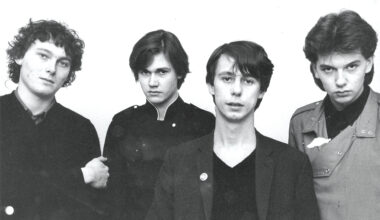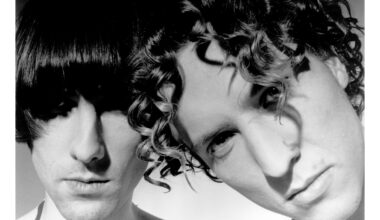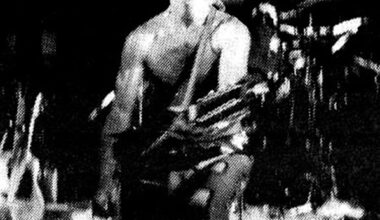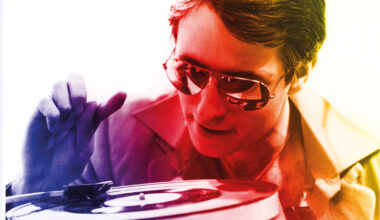“Get me Big Mac, get me fries to go” … Pop Will Eat Itself’s co-frontman Graham Crabb reveals the tale behind THE future-facing samplefest that is ‘Def Con One’
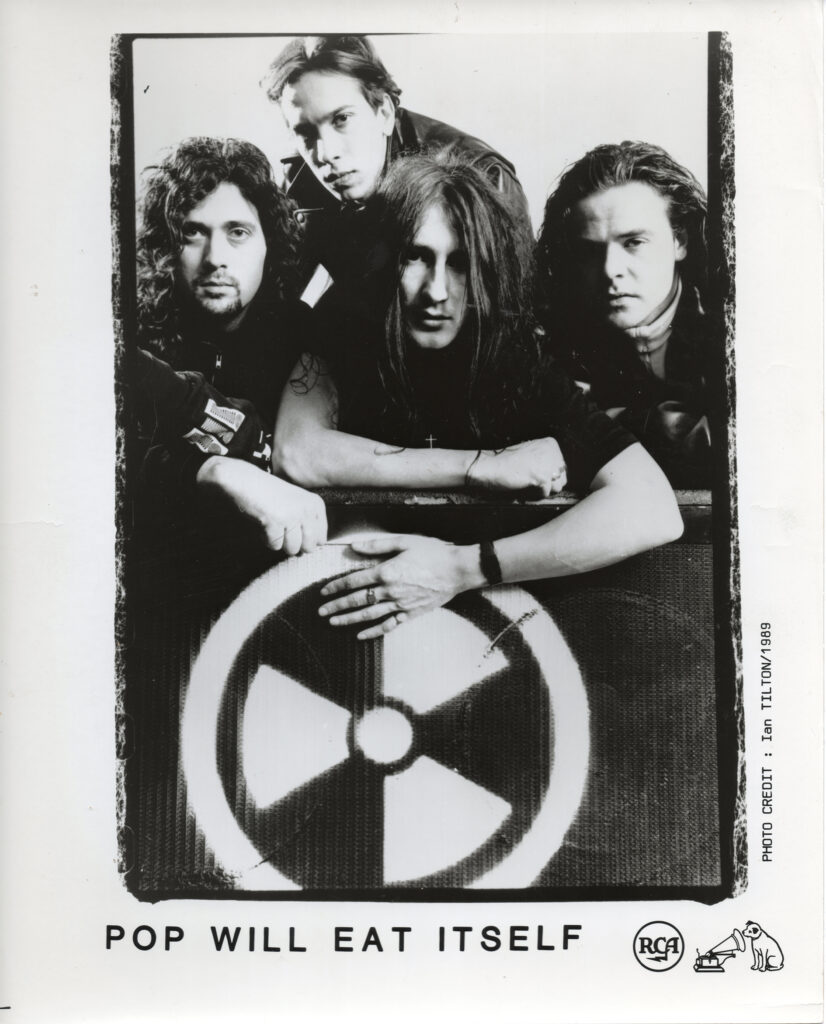
“Our first album, ‘Box Frenzy’, was also our first real attempt at sampling, so we were really just getting into our stride when we started work on ‘This Is The Day… This Is The Hour… This Is This!’ in 1988/89. We’d been lucky enough to be taken on by a major label for the second album, and so we were able to use the advance they gave us to pay ourselves, which meant that making music became our day jobs. Every day I could be working on samples and compiling cassettes of things we might be able to use. Suddenly we could devote every moment of our time to putting things together.
“‘Def Con One’ was recorded between ‘Box Frenzy’ and ‘This Is The Day…’. We did the first record with [FON’s in-house engineer and Warp co-founder] Robert Gordon, who also produced ‘Def Con One’, and he was very good on the programming side of things. He really taught us a lot about that.
When we moved onto the second album, our label guy had played us stuff that Flood had been producing, like Renegade Soundwave, and we thought that he was working on another level when it came to manipulating sound. We knew that’s where we wanted to head, so we had a meeting with Flood, got on like a house on fire. We shared the same ideas and seemed to enjoy each others’ company. He produced the rest of the album and mixed ‘Def Con One’.
“We were listening to a lot of Public Enemy at that time, and liked how their producers The Bomb Squad would just layer and layer samples. That was one of our main inspirations. We loved how you could have 20 or 30 samples on one track, and just one after another. It was mind-blowing the first time I heard ‘It Takes A Nation Of Millions To Hold Us Back’, and hopefully that’s what we did for other people when they first heard songs of ours like this.
“Another big influence on us was Justified Ancients Of Mu Mu, who later became The KLF. They were using big, noticeable samples of songs in some of their tracks. Later on, because of copyright issues, we had to make things, erm, ‘less recognisable’, but when we were doing ‘Def Con One’ it was when we still liked the recognition of the sample. ‘Def Con One’ goes from ‘Crazy Horses’ by The Osmonds into the riff from ‘Funkytown’ by Lipps Inc and then ‘I Wanna Be Your Dog’ by The Stooges. It’s kind of a forerunner of the mash-up scene, I suppose.
“My stance was always that sampling was more honest. We’re all influenced by music, and so if there’s a piece of music I really like, I’m going to work it in; I’m going to work around it and I’m going to create something new with it. Whereas when you listen to a band like Oasis, they might have ripped off a riff from T. Rex or copied The Beatles, and I don’t really see the talent in that.
“We still have to be careful about what we say we sampled back then. Publishing companies are quite greedy now, and if you’ve used something that’s noticeable, then they can say they want 100 per cent of the writing credit. In ‘Def Con One’, we used ‘The Twilight Zone’ theme heavily, and that was so obvious that the record company immediately said we wouldn’t get away with it, but they could see that it was essential for the track. RCA spoke to the publisher, who said how much they wanted for it. We were lucky to have a record label’s budget to play with.
“We also worked with DJ Winston on ‘Def Con One’. He used a Motown-style drum beat, which he scratched into the track. As we got heavily into sampling, I had this idea that I wanted to put all of the samples onto an acetate, so that we could actually get a DJ to scratch them back in, almost as if we were sampling other people’s records. We put our vocals onto this acetate, and had them scratched back in by Winston. In effect we were sampling ourselves before people had even heard the original of what we were sampling. It was all very post-modern.
“Clint [Mansell] and I took it in turns to write the lyrics for Pop Will Eat Itself, and he wrote ‘Def Con One’. A lot of our lyrics came on quite late, because we needed to hear how the samples all came together first. It was often like doing your school homework on the bus into school. There wasn’t a strategy for putting tracks together, it was a freeform experiment. You had to gauge the mood of the track, which would inspire the subject, and then when you’d got the mood and the subject, that would give you a lot of inspiration to come up with a lyric. You might have a basic idea early on, maybe just a beat and a loop, whereas for other tracks you might have a few sample ideas that you knew you wanted to put together.
“A lot of the influences for Clint’s lyrics on ‘Def Con One’ were from comics like ‘Watchmen’ and ‘2000 AD’. The subject matter of those definitely deals with very obvious Armageddon scenarios. Clint really brought the more ‘the end of the world is nigh’ type stuff to the table out of the two of us. My lyrics tended to be influenced by funnier comics like ‘The Fabulous Furry Freak Brothers’.
“We had read about some band recording their album in the Bahamas and thought, what a bunch of utter twats. So of course when it came to writing up the sleeve notes for ‘This Is The Day…’ we decided to put that we recorded it in the Bahamas, at Compass Point. It was an in-joke, which we were prone to doing back then. We actually recorded it in Fulham.”
PWEI’s ‘Def Comms 86-18’ four-CD boxset is out on Cherry Red
